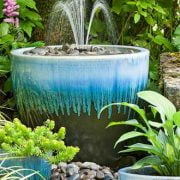If you want to put your green thumb to good use, but are holding yourself back because you don’t have a garden, don’t! With more and more people living in smaller areas, people have figured out countless ways to grow gardens, even if you do live in a small space.
Many websites like Usaj realty exist to help you look for the perfect home, so even if you can’t afford a big home or a place with a garden, you can find a place with a balcony or a rooftop where growing gardens is allowed. UMoveFree suggests that they’re the biggest apartment listing site in Texas, and they’re probably the one in almost every state. With the help of sites like this, it will only take a little research to find the right place for yourself.
Once you feel confident you can buy plants from an online store and give garden-growing a go, get started!
See if You Have Everything You Need
Before you start growing your small garden, you’ll need to make some preparations. Here is a list of things you’ll need to help your plants grow:
- Sunlight: Many plants need a full day of sunlight to grow, but if you live somewhere with tall buildings that block out the sun you can invest in a grow light that can help your plants instead.
- Wind: Plants don’t need wind, but they need protection from it. If you’re making your garden on a rooftop or balcony, it might be a good idea to add a screen or a barrier for the wind. Alternatively, you can just invest in some wide and heavy pots that won’t topple over, but that won’t guarantee protection for your fruits, vegetables, and flowers.
- Consider the Weight: A pot full of soil is going to weigh a great deal, and the weight can triple once you add water to it. You’ll need the right surface for the pots, and you’ll need to check with your housing society or landlord to ask for weight restrictions on the balcony.
- The Right Soil: You can’t grow potted plants in standard garden soil. That’s because the soil will clump together in a pot and restrict your plant’s growth. You can, however, buy some potting mix. One of the great perks of the potting mix is that not only is it made especially for potted plants, but it’s also sterile, which means your plants won’t catch any diseases.
Finding Suitable Plants
Not all plants are great for life indoors, and you’ll have your tastes to take into consideration too. You can grow terrariums or salad plants, tomatoes, strawberries, and herbs pretty well, as long as you keep them watered and fresh. If you want, you can even grow lemons.

Each type of plant has its own needs. Strawberries grow best in soil that’s always a bit moist, and tomato pots can be hung on the wall for best results. If you’re growing lemons, make sure you put something under the tree because they produce a sticky sap. Salad vegetables like lettuce need to be watered regularly and generously, but if you opt for succulents you can afford to be a bit more careless.
If you’re not restricted to a kitchen counter or a windowsill but have a balcony, a slender apple tree (yes, they exist!) might be a great option too. Mushrooms also grow well indoors and don’t require a lot of maintenance. Ready-made mushroom grow kits prefer semi-shaded and moist environments, so place them near the kitchen sink. In two weeks or so, they can yield homegrown edible mushrooms that you can use to enhance the flavor and texture of your favorite dishes.
Taking Care of Your Plants
Once you have your garden up and running, remember to water your plants every day. For convenience, place them somewhere water is close by – this is also why so many people grow plants in their apartment kitchen. Alternatively, buy a watering hose you can connect to a nearby tap for watering purposes.

To ensure you’re growing healthy plants, feed them water-soluble fertilizer regularly, but beware of the dangers of overfeeding your plants. You’ll need to make sure your plants have enough moisture by spraying water around them almost every day as well – this prevents them from getting too dry.
Closely inspect all of your plants regularly for any signs of disease, pests, or any other problems. If you notice one of your plants getting sick, immediately move it away from the other plants and look into what you can do to save that plant.
Harvest all your plants regularly, or you’ll risk losing all the fruits of your labor. In many cases, this even encourages plants to produce more food, so it’s a win-win situation! All this might seem like a lot of work, but if you start small with just one or two plants and take it from there, looking after your plants will become routine pretty easily, and it won’t seem like any work at all!














Comments